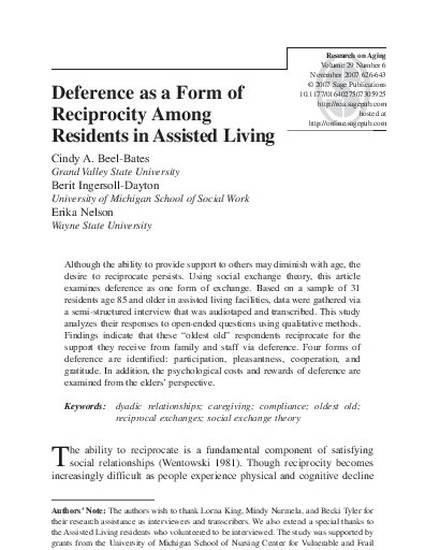
- dyadic relationships; caregiving; compliance; oldest old; reciprocal exchanges; social exchange theory
Although the ability to provide support to others may diminish with age, the desire to reciprocate persists. Using social exchange theory, this article examines deference as one form of exchange. Based on a sample of 31 residents age 85 and older in assisted living facilities, data were gathered via a semi-structured interview that was audio-taped and transcribed. This study analyzes their responses to open-ended questions using qualitative methods. Findings indicate that these “oldest old” respondents reciprocate for the support they receive from family and staff via deference. Four forms of deference are identified: participation, pleasantness, cooperation, and gratitude. In addition, the psychological costs and rewards of deference are examined from the elders’ perspective.
Beel-Bates, Cindy A., Berit Ingersoll-Dayton, and Erika Nelson. "Deference as a Form of Reciprocity Among Residents in Assisted Living." Research on Aging 29, no. 6 (2007): 626-643. https://journals.sagepub.com/doi/abs/10.1177/0164027507305925
Available at: http://works.bepress.com/cindy-beel-bates/5/
